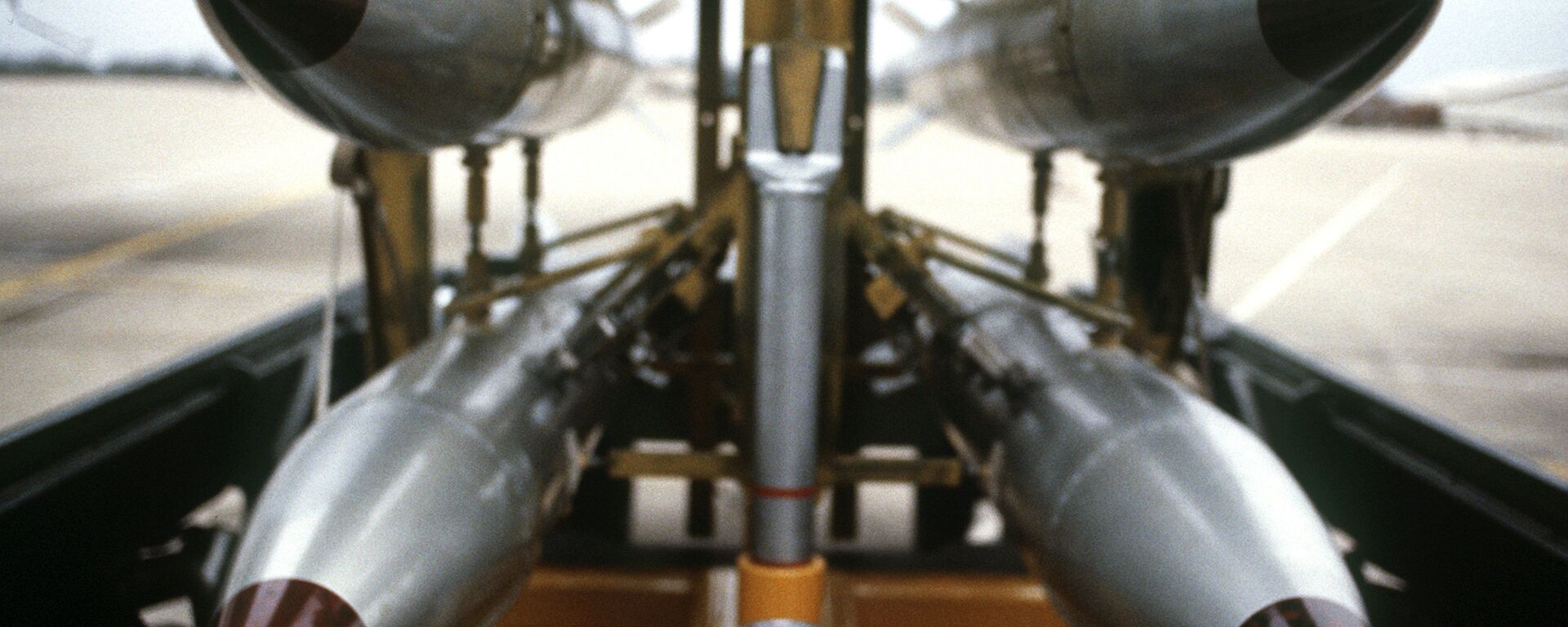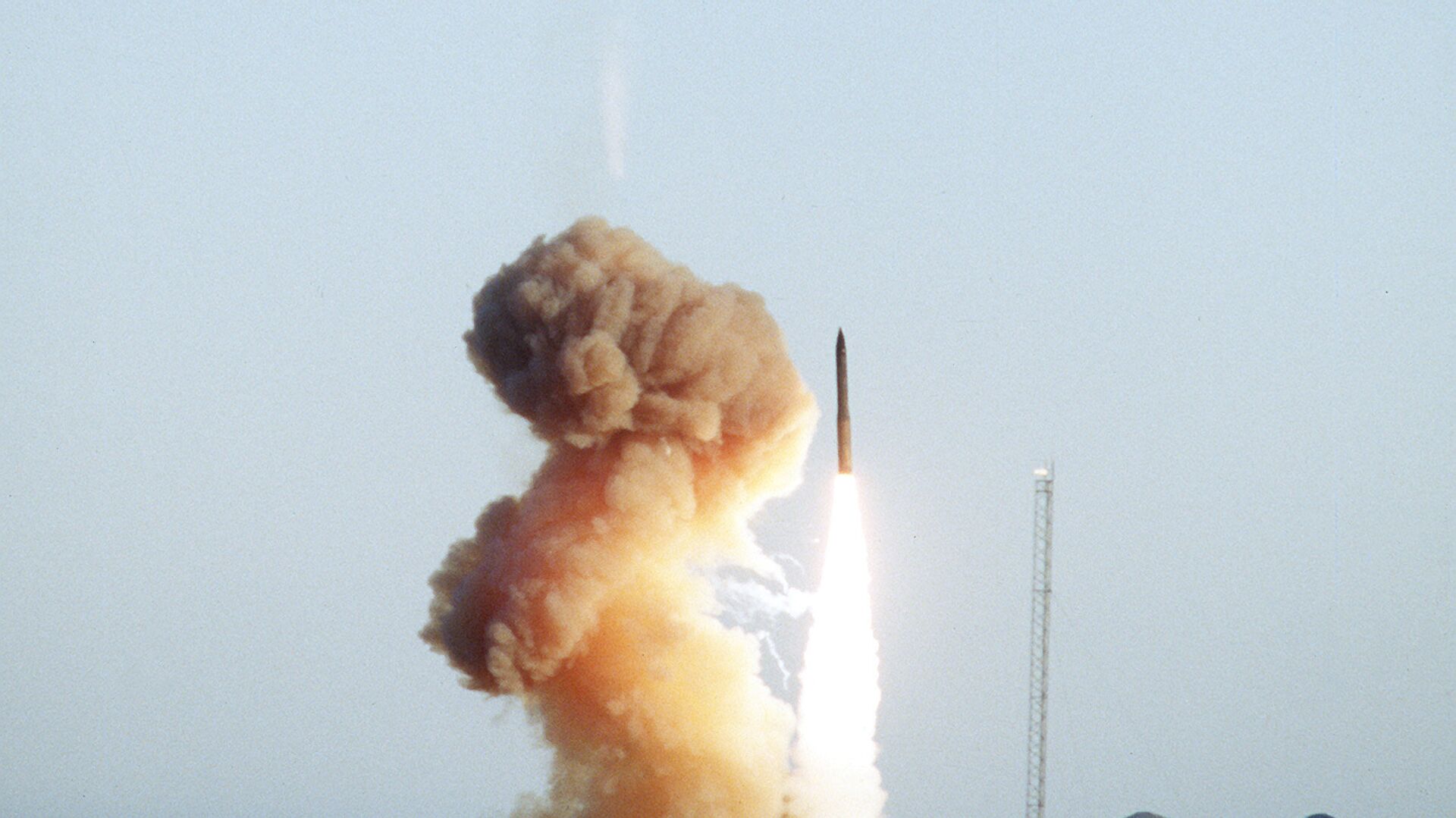https://sputnikglobe.com/20231102/expert-us-has-proven-track-record-of-making-breaking-arms-control-deals-to-gain-advantage-1114670252.html
Expert: US Has ‘Proven Track Record’ of Making, Breaking Arms Control Deals to Gain Advantage
Expert: US Has ‘Proven Track Record’ of Making, Breaking Arms Control Deals to Gain Advantage
Sputnik International
The Chinese Foreign Minister has revealed that representatives from Beijing and Washington will meet next week to discuss nuclear arms control - a topic rarely discussed by the two nuclear superpowers.
2023-11-02T16:37+0000
2023-11-02T16:37+0000
2023-11-02T18:13+0000
analysis
china
comprehensive nuclear-test-ban treaty (ctbt)
us
nuclear weapons
arms control
https://cdn1.img.sputnikglobe.com/img/18048/95/180489599_0:1022:1910:2096_1920x0_80_0_0_a075f316843ec76f9f574fc725457e41.jpg
The Chinese Foreign Minister has revealed that representatives from Beijing and Washington will meet next week to discuss nuclear arms control - a topic rarely discussed by the two nuclear superpowers.Brian Berletic, a former US Marine and an independent geopolitical researcher and writer, told Sputnik that the US had likely agreed to the talks in order to appear like it is trying to reach an accommodation with China, against which it has been ramping up its military and political antagonisms in recent years.“We've seen the US do this repeatedly to Russia and now Iran. It appears they would like to pursue a similar formula with China. It's unlikely China would allow the US to leverage such a deal to gain intelligence on Chinese nuclear capabilities.”He noted that “if the US thought it was possible to constrain or reverse Chinese nuclear capabilities I think they would try, especially under the guise of an arms control treaty.”“In the worst-case scenario, the United States would like to create a situation where it would have an overabundance of nuclear weapons to use against China in a first strike, having developed what it hopes are significant anti-missile capabilities and also hoping that whatever damage China does in retaliation would give it the advantage emerging from a nuclear exchange,” he said.Berletic dismissed the notion of a trilateral treaty between the US, Russia, and China, as Washington has long said it hopes to obtain.“Tensions continue rising between the US and China specifically because of Washington's violation of its own ‘One China’ policy. Until it can uphold these previous policies, it cannot be trusted to uphold these much more important arms-control agreements.”
https://sputnikglobe.com/20231028/penetrating-the-earth-us-new-b61-13-nuclear-bombs-meant-to-deter-russia-and-china---prof-1114557538.html
china
Sputnik International
feedback@sputniknews.com
+74956456601
MIA „Rossiya Segodnya“
2023
News
en_EN
Sputnik International
feedback@sputniknews.com
+74956456601
MIA „Rossiya Segodnya“
Sputnik International
feedback@sputniknews.com
+74956456601
MIA „Rossiya Segodnya“
nuclear weapons; arms control talks; us china talks
nuclear weapons; arms control talks; us china talks
Expert: US Has ‘Proven Track Record’ of Making, Breaking Arms Control Deals to Gain Advantage
16:37 GMT 02.11.2023 (Updated: 18:13 GMT 02.11.2023) An expert told Sputnik that Washington was likely agreeing to arms control talks with China in order to project an image of reasonableness to the world, rather than to deescalate the potential for a nuclear conflict to break out.
The Chinese Foreign Minister has revealed that representatives from Beijing and Washington will
meet next week to discuss nuclear arms control - a topic rarely discussed by the two nuclear superpowers.
The meeting comes weeks after a Pentagon report indicated China’s small nuclear weapons arsenal was growing at a rate faster than Washington experts had expected. The US lacks precise intelligence on China’s arsenal, with the October report estimating China has some 500 nuclear warheads and anticipating they will have 1,000 by 2030. However, the Bulletin of the Atomic Scientists nonprofit said in March that China has 410 nuclear warheads. By contrast, the US has more than 5,000 nuclear weapons.
Brian Berletic, a former US Marine and an independent geopolitical researcher and writer, told Sputnik that the US had likely agreed to the talks in order to appear like it is trying to reach an accommodation with China, against which it has been ramping up its military and political antagonisms in recent years.
“In the past, the US has made, then broken, arms control deals with other nations primarily to appear to be pursuing a diplomatic resolution to tensions with other nations, while in reality sabotaging the deals to then accuse their adversaries of posing a threat to global peace and stability,” he explained.
“We've seen the US do this repeatedly to Russia and now Iran. It appears they would like to pursue a similar formula with China. It's unlikely China would allow the US to leverage such a deal to gain intelligence on Chinese nuclear capabilities.”

28 October 2023, 16:27 GMT
He noted that “if the US thought it was possible to constrain or reverse Chinese nuclear capabilities I think they would try, especially under the guise of an arms control treaty.”
“In the worst-case scenario, the United States would like to create a situation where it would have an overabundance of nuclear weapons to use against China in a first strike, having developed what it hopes are significant anti-missile capabilities and also hoping that whatever damage China does in retaliation would give it the advantage emerging from a nuclear exchange,” he said.
“While this calculus seems unthinkable to ordinary people, the US spent decades throughout the Cold War making such plans and continues encircling both Russia and China with nuclear weapons in an apparent continuation of this mindset.”
Berletic dismissed the notion of a trilateral treaty between the US, Russia, and China, as Washington has long said it hopes to obtain.
“The US has a proven track record of making, then breaking treaties, agreements, and policies of all kinds. The US is waging a proxy war against Russia at this moment because of its broken promises regarding the expansion of NATO and its undermining of the Minsk Agreements,” he noted.
“Tensions continue rising between the US and China specifically because of Washington's violation of
its own ‘One China’ policy. Until it can uphold these previous policies, it cannot be trusted to uphold these much more important arms-control agreements.”



